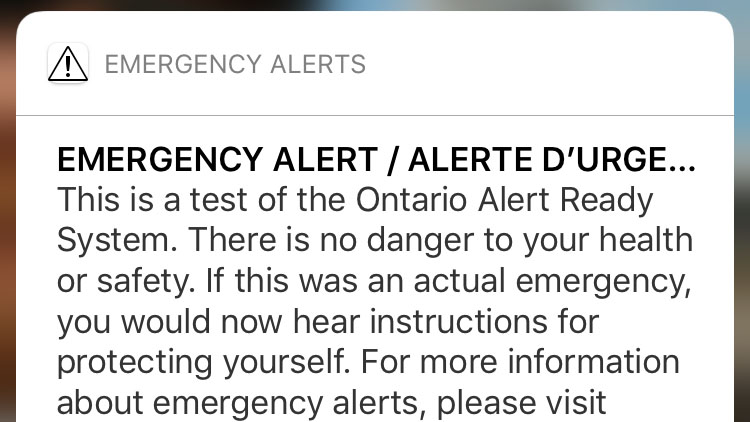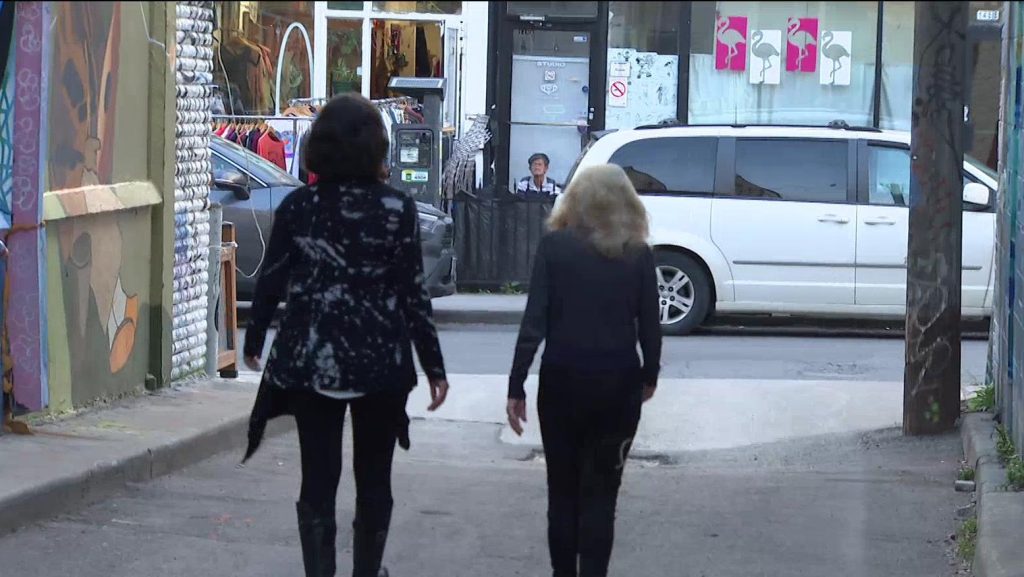Toronto Wildlife Centre rescues Mexican snake found in tomato box at food terminal
Posted December 28, 2023 6:00 pm.
Processing boxes of tomatoes at the Ontario Food Terminal in Toronto is no doubt a routine task, but the discovery of a surprise slithering traveller weeks ago has prompted a lengthy process to get back to Mexico.
Nathalie Karvonen, the executive director of the Toronto Wildlife Centre, told CityNews a handler named Troy was unpacking a crate of tomatillo tomatoes toward the end of November and discovered an orange-and-white, northern cat-eyed snake.
“We get calls … probably like once a year about animals that have been accidentally transported either in produce, sometimes in flowers, one time we had someone come in with their suitcase to the front desk, opened it up and then there was a scorpion inside,” she said.
“It does happen that animals get into the wrong place at the wrong time.”
However, this was the first time a northern cat-eyed snake was brought to the centre. Northern cat-eyed snakes are mildly venomous and it doesn’t spark a concern for human health.

In a video posted to the centre’s Instagram account on Thursday, the snake, which appeared to be a couple of feet long, could be seen being removed from the box of tomatoes and put into an enclosure.
The snake was given a medical exam by veterinary staff and despite the 3,000-plus-kilometre journey, it was in good health.
Karvonen said Toronto Wildlife Centre staff and volunteers are providing regular care and are working to keep the enclosure warm and moist enough to support the snake.
The centre is a charitable wildlife rescue organization. It largely runs on donations and more than 5,600 creatures have been treated this year, including wildlife affected by a chemical fire spill in the west end of Toronto earlier this year.
Part of the organization’s mandate is to make sure so-called “accidental travellers” can get back to native surroundings.
“They have to be sent back to their home territory, so if we can track the actual address … like we can in our case then we do send the animals back home,” Karvonen said.
“We’ve never had to send an animal back to Mexico and we started right away looking into the paperwork to get the snake back and it’s much more complicated.”
She said the responsible authorities in Mexico are currently off due to the holidays and hope to resume the rehoming efforts in the new year.
There is an unexpected source of help that has stepped up to help. Karvonen said a veterinary intern who spent a year in Canada doing his placement at the Toronto Wildlife Centre lives in Mexico. She said he has contacts with organizations in the country and can help with translation.
In addition to caring for other animals, the centre faces several daily care costs. In the case of the snake, centre staff said an initial investigation found it could get into the thousands to return the snake to Mexico.
“(It) kind of shocked us so we’re trying to figure out how to get around that,” Karvonen said.
“Regardless of how people feel about snakes and lots of people love snakes like I do … I mean they are valuable individuals in the ecosystem as they are long-lived species as well. Some snakes live decades and decades.”
“It’s definitely worth it to this snake to send him home … as he might have many, many years left.”










